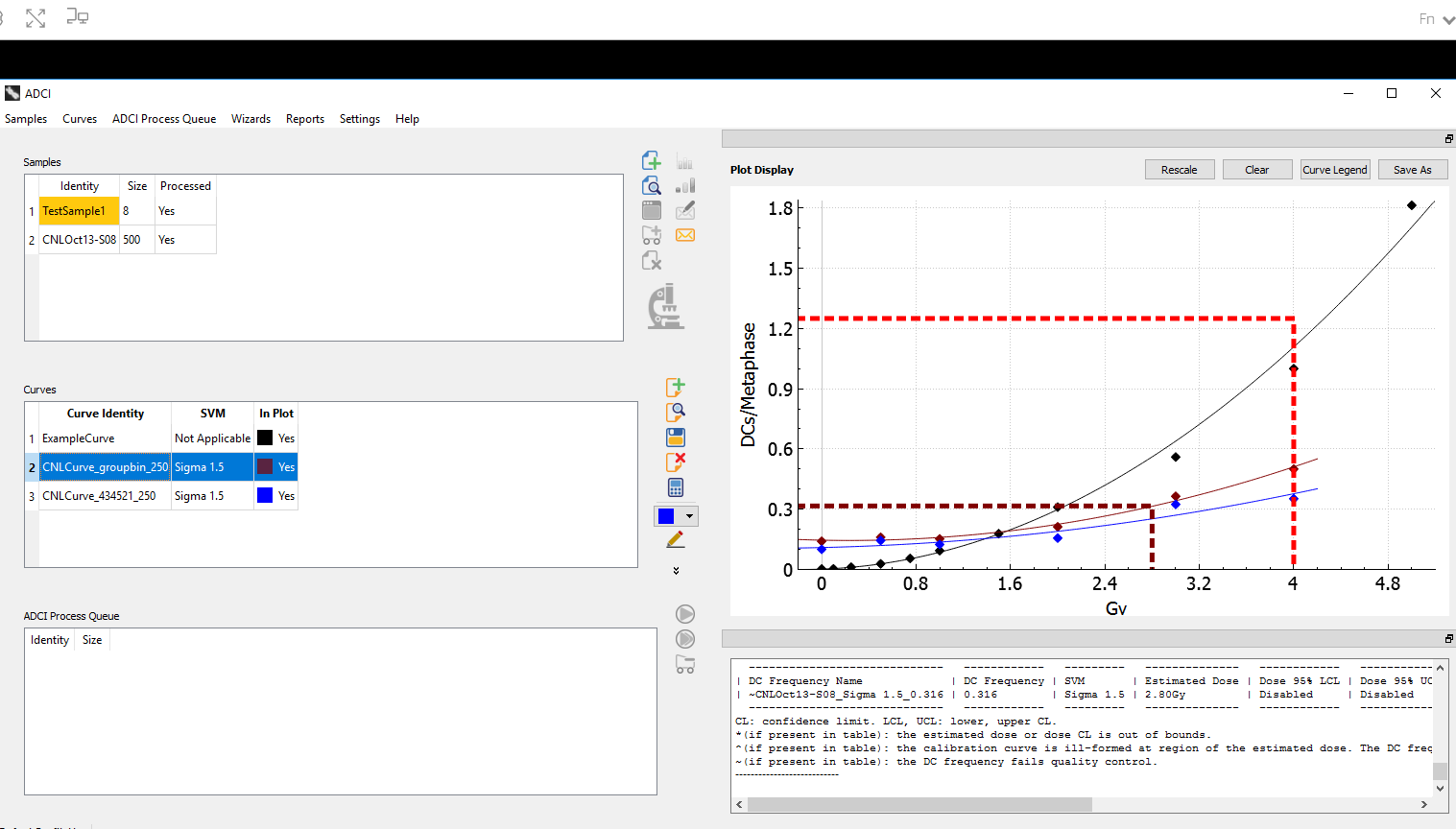Greetings to you for a safe and healthy New Year.
The Automated Dicentric Chromosome Identifier and Dose Estimator (ADCI) has become the biodosimetry industry’s leading software system for accurate and rapid quantification of absorbed ionizing radiation. This year we upgraded our Windows-based system to also determine partial body exposures, both fraction of cells exposed and whole body equivalent dose levels (Shirley et al. 2020).
In the coming year, CytoGnomix will introduce ADCI in the Cloud. This version of our software will make ADCI available as a highly secure web-application. All of the same functionality found in the Windows software will be available in ADCI_Online , except users will upload metaphase images to our AWS application. We have already validated the Demonstration Version of ADCI in this virtual environment. It is no longer necessary to download and install this software on your own computer in order to test drive it.
Contact us to access a Demo of ADCI_Online.

